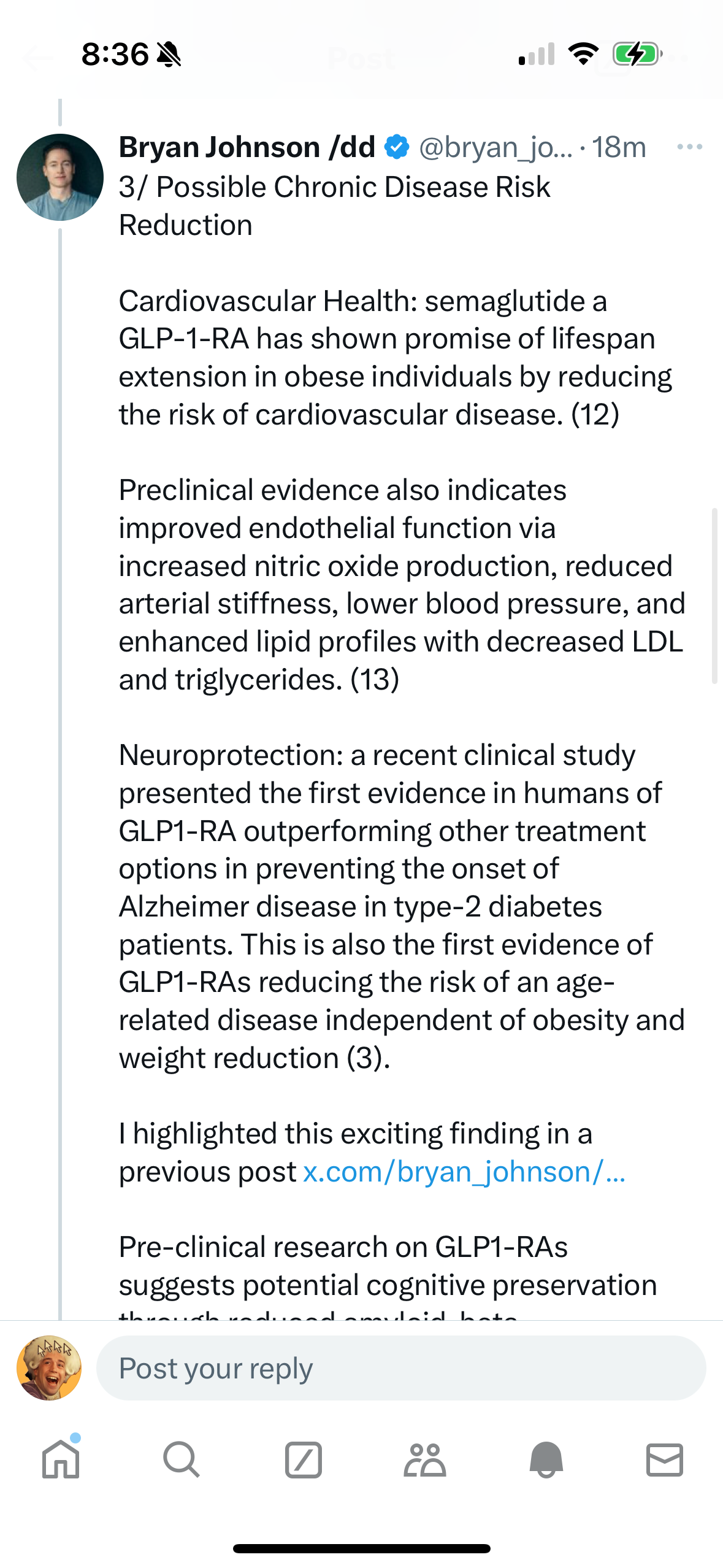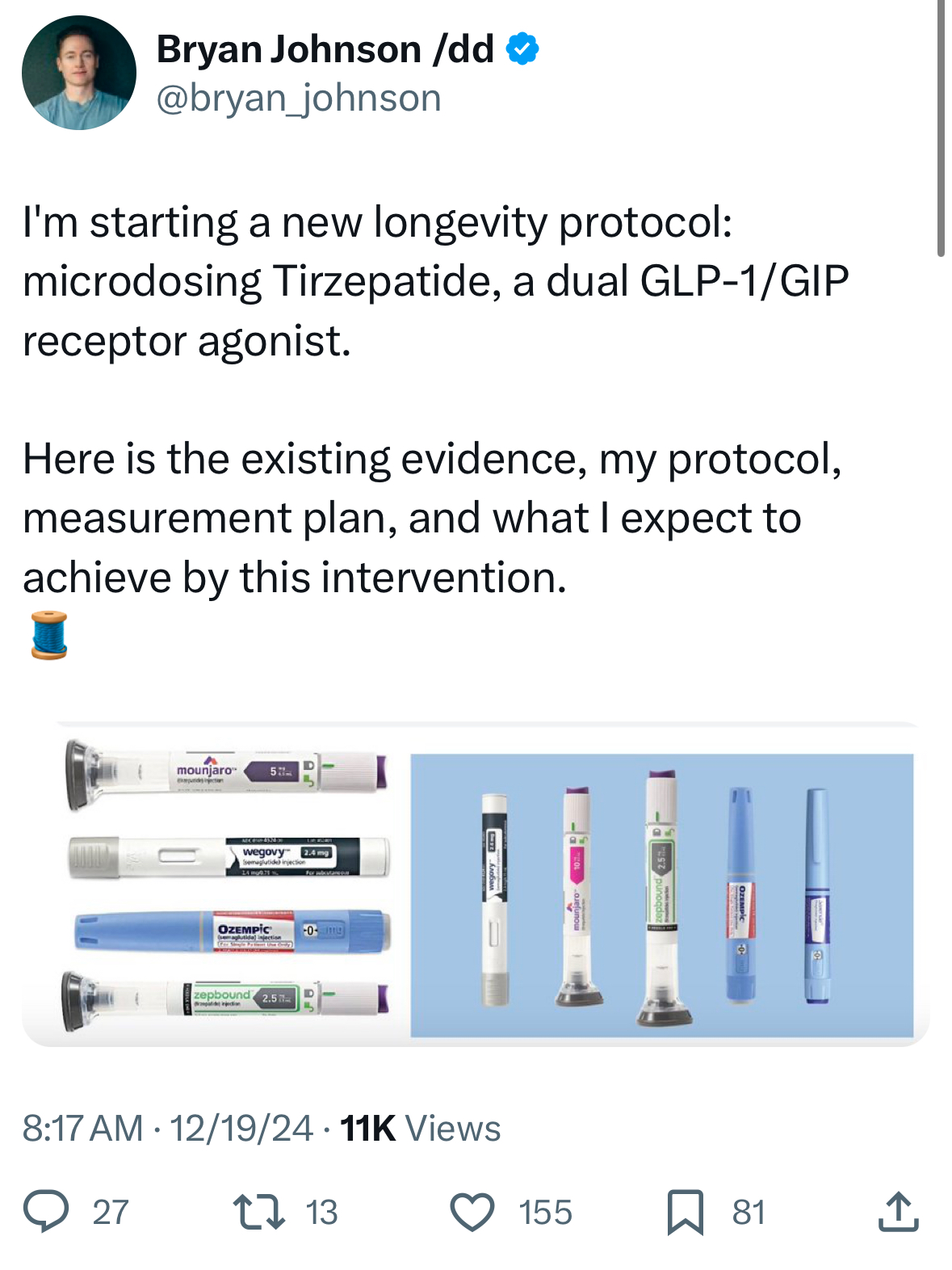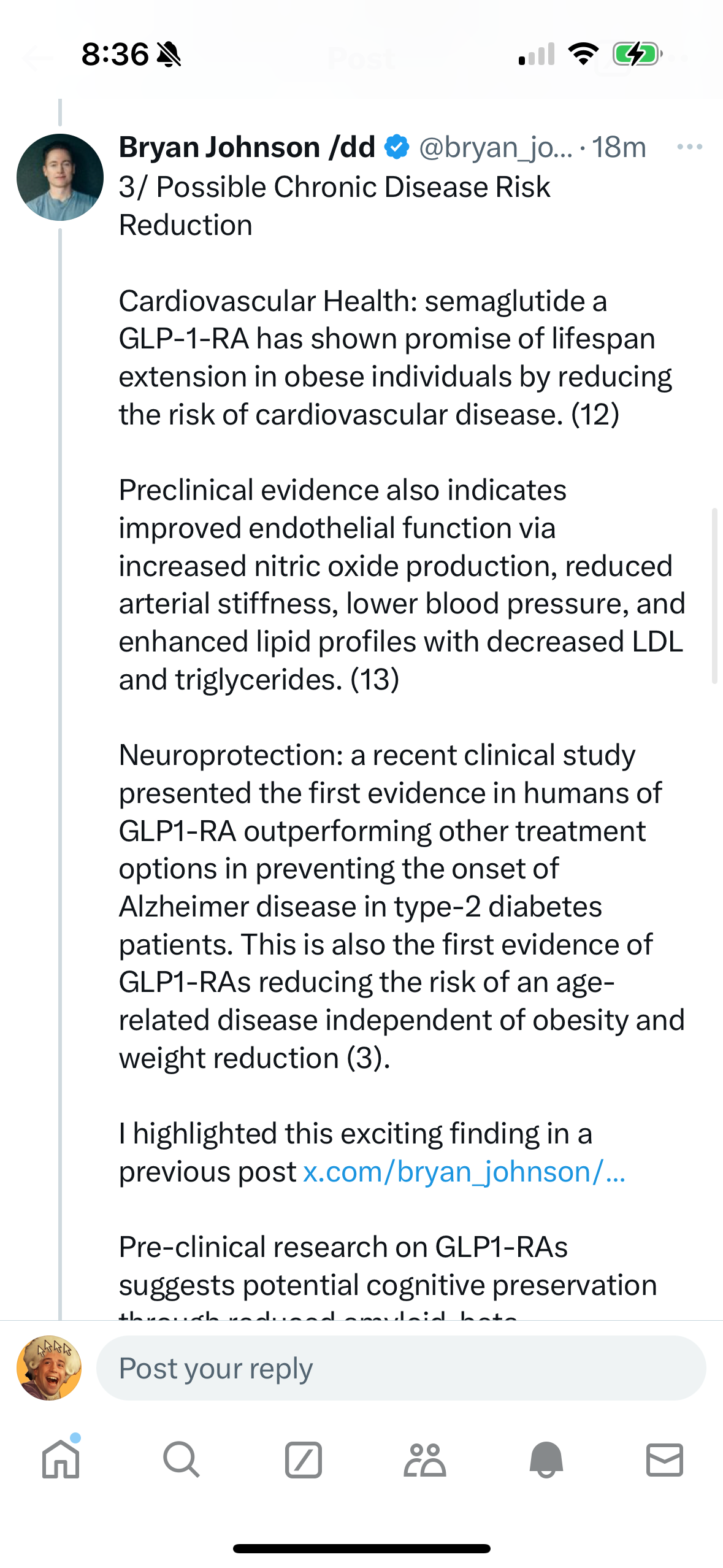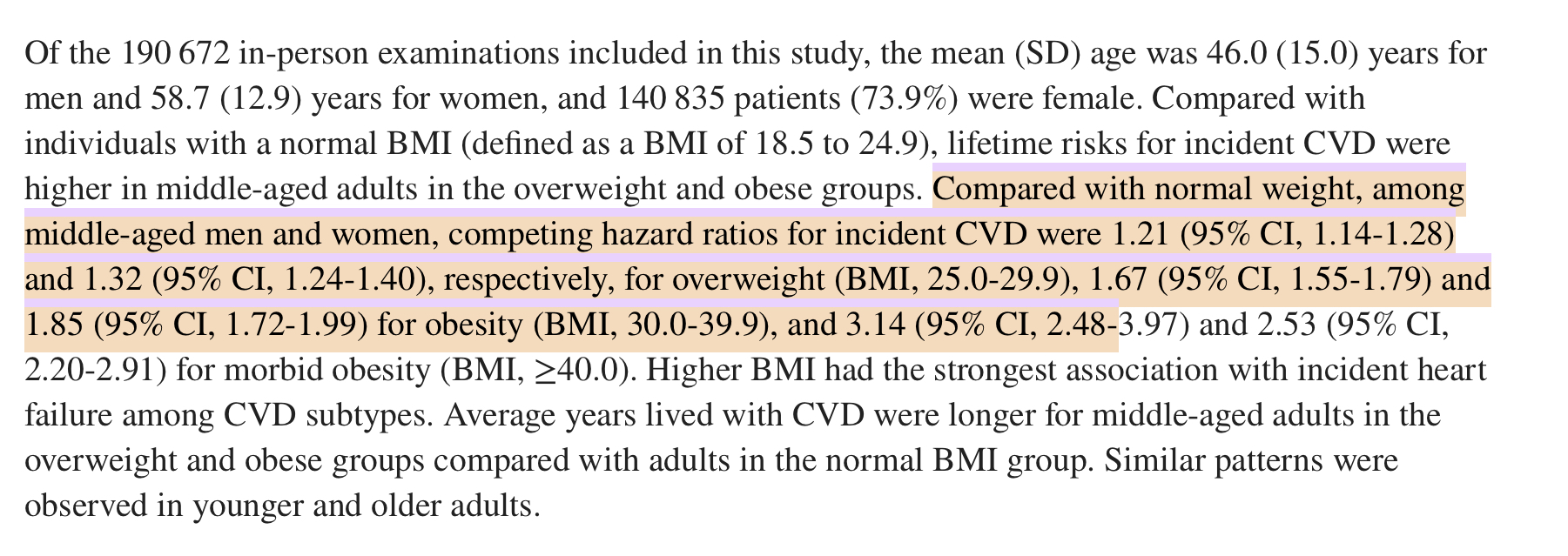
We'll check Google Scholar in 2033-Jan, and see how the long-term mortality data is looking for overweight people prescribed semaglutide. Must be significant at p<0.005. "Semaglutide" also refers to the brand names Ozempic, Wegovy and Rybelsus, etc.
Will semaglutide be shown to improve lifespan, when prescribed to overweight people?
People are also trading
High probability that this resolves as YES given the outcome of the FLOW trial:
https://x.com/JoseJuanatey/status/1794012809736462533
Overweight people have much higher incidence of cardiovascular/renal disease. If semaglutide reduces death from any cause in this patient group, and does not have significant harmful effects, then it very likely improves lifespan when prescribed to overweight people in general
I'm unsure if this would be far enough out to offer much power in detecting the change? I mean, if you'd only expect something like a 5% mortality rate of the morbidly obese population of now nine years hence, then you're going to need reliable data from a pretty large population to actually be capable of detecting any reasonably sized effect. I have no idea what ~10 year mortality rates for the morbidly obese are - if they're a lot higher than I think, then maybe this isn't as hard as it sounds.
"Must be significant at p<0.005"
A study designed to be just big enough to detect the expected effect size at the standard p<0.05 (so as to minimize study cost) would have to either 1. make a factor-of-ten error in study design to accidentally get a p<0.005 result, or 2. get this mortality signal as a secondary effect in a larger study looking for a primary outcome 10x rarer than mortality (which is unlikely: mortality is usually (and hopefully!) the rarest signal).
Absolutely not. For starters, we don't even know for certain if being overweight increases risk of mortality to any substantial degree, except in the morbidly obese. Second of all, wegovy is a very blunt tool as a drug. It induces weight loss by greatly decreasing appetite, but robust appetite is often a heuristic for good health and appetite signalling can be useful in helping people auto adjust to changing health circumstances like illnesses (temporary, chronic, and terminal) and maintaining virility. Then there's the whole issue of wegovy negatively affecting insulin sensitivity by causing the pancreas to secrete excess insulin. Poor insulin sensitivity is one of the strongest indicators of good health and longevity--much better than weight for that matter. And there's really not much evidence to suggest that non-morbidly obese people who lose weight and become normal weight have significantly better mortality rates than non morbidly obese overweight people who don't.





